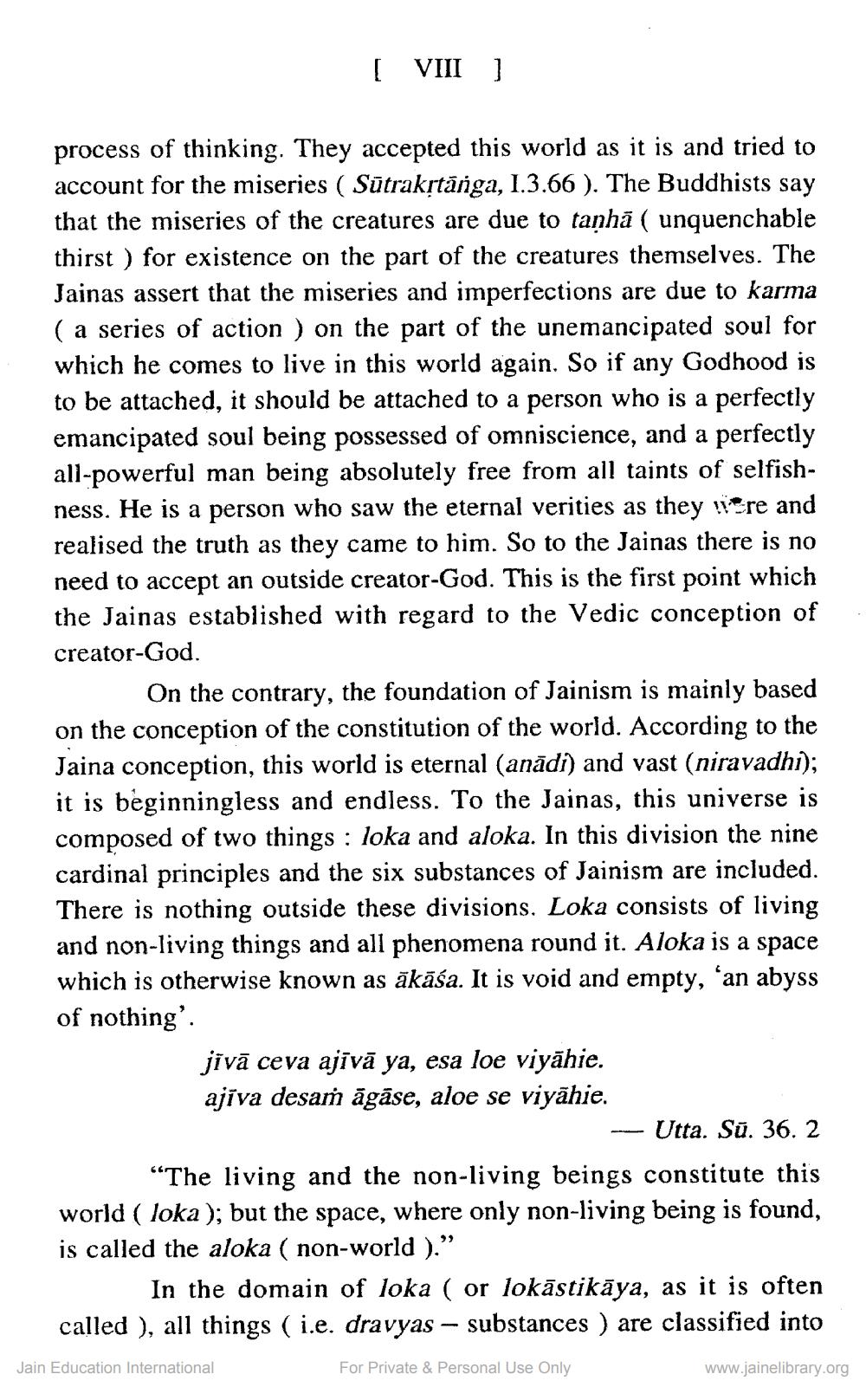________________
[ VIII ]
process of thinking. They accepted this world as it is and tried to account for the miseries (Sūtrakṛtānga, 1.3.66). The Buddhists say that the miseries of the creatures are due to tanhã ( unquenchable thirst) for existence on the part of the creatures themselves. The Jainas assert that the miseries and imperfections are due to karma ( a series of action) on the part of the unemancipated soul for which he comes to live in this world again. So if any Godhood is to be attached, it should be attached to a person who is a perfectly emancipated soul being possessed of omniscience, and a perfectly all-powerful man being absolutely free from all taints of selfishness. He is a person who saw the eternal verities as they were and realised the truth as they came to him. So to the Jainas there is no need to accept an outside creator-God. This is the first point which the Jainas established with regard to the Vedic conception of creator-God.
On the contrary, the foundation of Jainism is mainly based on the conception of the constitution of the world. According to the Jaina conception, this world is eternal (anādi) and vast (niravadhi); it is beginningless and endless. To the Jainas, this universe is composed of two things: loka and aloka. In this division the nine cardinal principles and the six substances of Jainism are included. There is nothing outside these divisions. Loka consists of living and non-living things and all phenomena round it. Aloka is a space which is otherwise known as ākāśa. It is void and empty, 'an abyss of nothing'.
jīvā ceva ajīvā ya, esa loe viyāhie. ajīva desaṁ āgāse, aloe se viyāhie.
Utta. Sū. 36. 2
"The living and the non-living beings constitute this world (loka); but the space, where only non-living being is found, is called the aloka (non-world )."
In the domain of loka ( or lokāstikāya, as it is often called), all things (i.e. dravyas - substances) are classified into
Jain Education International
For Private & Personal Use Only
www.jainelibrary.org




